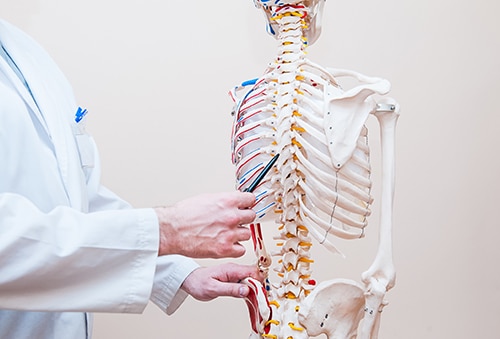Would you like to continue or select additional body parts?

- Home
- Conditions
Spinal Cord Injuries
-
As a key part of your central nervous system, your spinal cord is the link between the brain and the rest of the body. Specifically, this is how we perceive pain and move our limbs, as it is responsible for facilitating motor control and sensory function. A spinal cord injury is marked by damage to the spinal cord. Spinal cord injuries are often very serious and are likely to have a lasting and significant impact on the body.
-
Depending on the location and severity, symptoms of a spinal cord injury may vary; symptoms can be as mild as a pinch in the neck, and severe as paralyzation. Symptoms can progress over time, or may be apparent immediately following trauma, such as a car accident. In any case, symptoms of a spinal cord injury can include:
– Pain, pressure, or stiffness in the back or neck
– Loss of fine motor skills
– Tingling or numbness in the hands or fingers
– Loss of control over bowel and bladder functions
– Paralysis in the torso, arms, or legs -
Spinal cord injuries are often the result of trauma. Common causes include:
– Sports-related injuries
– Violence, such as a gunshot or stabbing
– Diving accidents
– Car accident injuries
– High falls -
While it’s difficult to reverse the damage caused by a spinal cord injury, treatment options often focus on preventing further spinal problems. There are a multitude of surgical procedures that can prevent the progression of spine conditions. The doctors at the Interventional Spine & Surgery Group can most accurately identify which surgical options, rehabilitative treatment, and pain management techniques will work best and assist you in recovery.